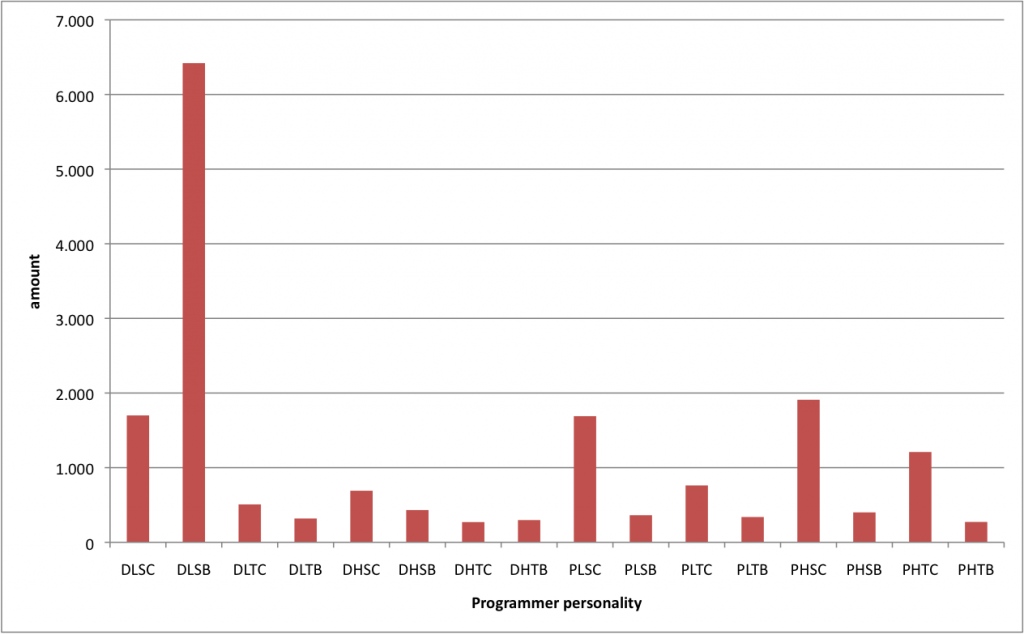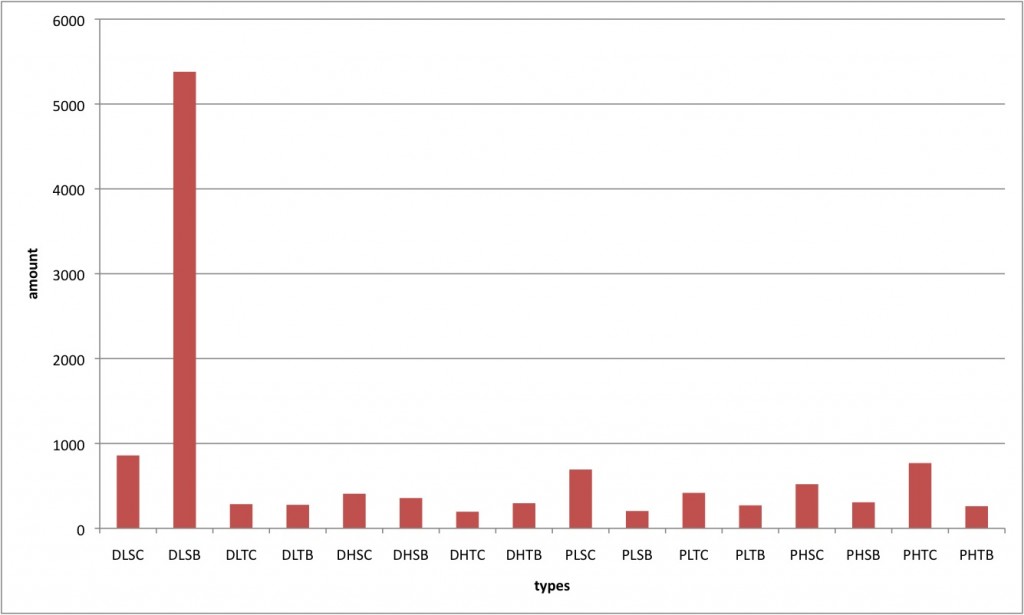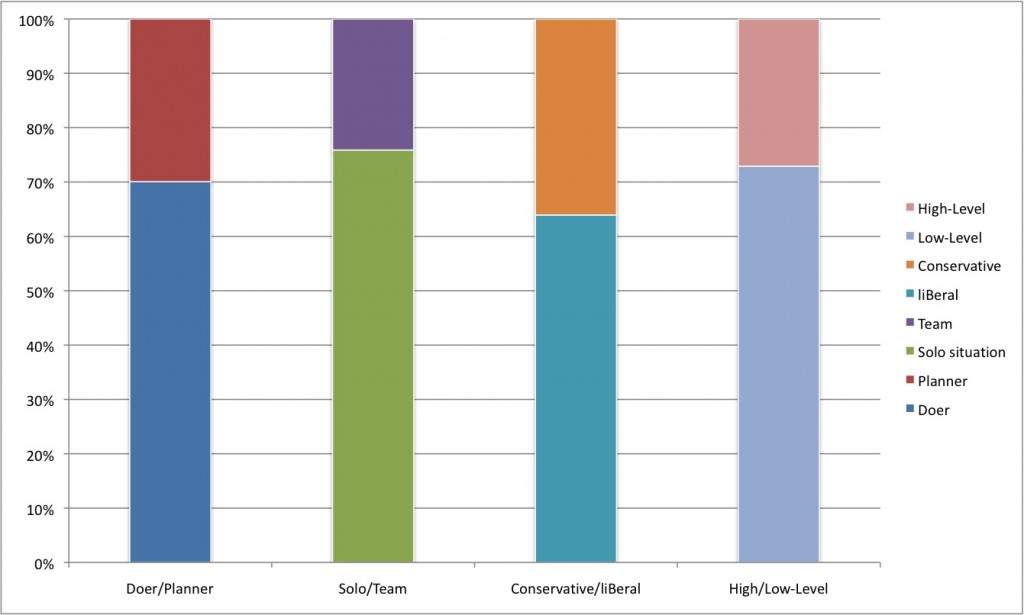Your programmer personality type is:
PHTC
I found this test quite interesting and it’s possible effect on hiring/formation of teams. What would be if people would use this or a more detailed version in the hiring process? Let’s analyze the four different categories:
Doer and Planner
It’s a bit like traditional hacker and software architect. I think it’s more a synergy than a contest. Software architects (planners) plan modules and there are doers who implement them.
High level and Low Level
Low level programmers are rather encountered in embedded system programming, operating system programming and the like. In contrast, high level programmers work on web applications, desktops applications etc.
Solo situation and Team
That’s interesting. Most projects are projects with more than one person. There are definitely exceptions (David Heinemeier Hansson) but generally it’s teamwork.
Conservative Programmer and liBeral programmer
It’s a bit complicated. Doolwind distinguishes between over-commenting and under-commenting. There was a large debate about this (Coding Without Comments). I’m inclined to less but useful comments.
So, would it affect the hiring process? Maybe, the last two points could be crucial. The other points are very job title related, therefore the result is much likely fixed.
Statistic:

Source: Google. searched term: “DLSC” programmer
Take the test: What programmer personality type are you?



